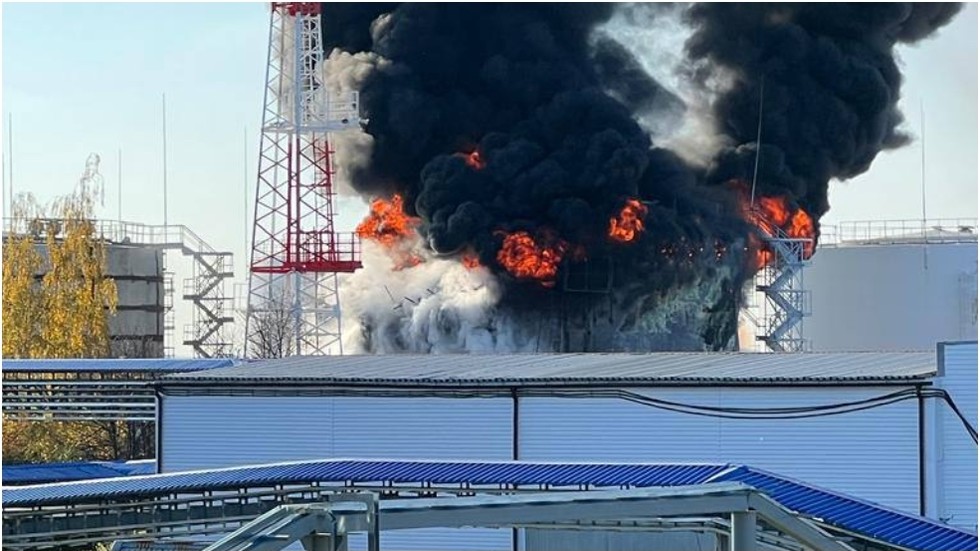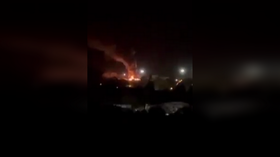
The attack caused a fire at the oil storage facility, Belgorod Region’s head Vyacheslav Gladkov said

A fire at an oil depot, which was struck during the shelling of Belgorod Region, Russia. Vyacheslav Gladkov / Telegram
An oil depot and a border checkpoint have been shelled in Russia’s southern Belgorod Region, Governor Vyacheslav Gladkov claimed on Saturday. The news comes just a day after a missile struck a power station in the city of Belgorod, causing a major blaze at the site.
“We have another shelling. One of the shells struck an oil terminal,” Gladkov wrote on his Telegram channel, adding later that the fire that followed the attack had been extinguished. No casualties have been reported.
Earlier on Saturday, the governor wrote on his Telegram channel that 14 shells had been fired at a customs office in the border city of Shebekino. He added that no one was hurt.
Russian officials previously accused Kiev of striking a power station in Belgorod on Friday, briefly disrupting electricity supply. During another shelling on Thursday, the top floor of a 16-story apartment block in the city was hit by a missile. There were no casualties.
Earlier this week, Moscow fired dozens of missiles at targets in Ukraine, saying it was in response to sabotage plots by Kiev targeting crucial Russian facilities, including the Kursk nuclear power plant, the TurkStream gas pipeline and the Crimean Bridge. Kiev has neither confirmed nor denied its alleged involvement, though some of its top officials and government agencies openly celebrated the bridge bombing.

On Friday, speaking at a media conference in the Kazakh capital Astana, Russian President Vladimir Putin said that “for now” there was no need for additional large-scale missile strikes on Ukrainian targets. He explained that the Russian military is now pursuing other objectives.
Russia sent troops into Ukraine on February 24, citing Kiev’s failure to implement the Minsk agreements, designed to give the regions of Donetsk and Lugansk special status within the Ukrainian state. The protocols, brokered by Germany and France, were first signed in 2014. Former Ukrainian President Pyotr Poroshenko has since admitted that Kiev’s main goal was to use the ceasefire to buy time and “create powerful armed forces.”
In February 2022, the Kremlin recognized the Donbass republics, which have since joined the Russian Federation, as independent states and demanded that Ukraine officially declare itself a neutral country that will never join any Western military bloc. Kiev insists the Russian offensive was completely unprovoked.




